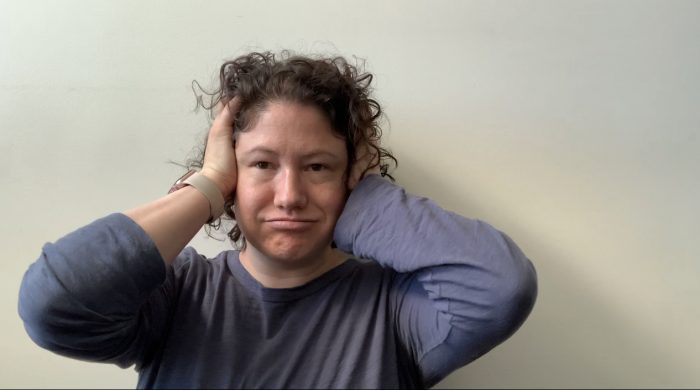On the 10th day since launching Lynzey May—Svadhayaya (the study of life), a site dedicated to sharing my journey living with Post-Traumatic Stress Disorder (PTSD) and anxiety—real, raw, and as it unfolds through the ebbs and flow of recovery—I received my first attack from online trolls.
Ten days is not a long time, so I was shocked, hurt, and devastated. I had tears streaming from my face.
To be honest, I wanted to crawl back under the rock I had been living under, the place that felt safe but was doing nothing for my recovery.
Attacked by people who know nothing about me. Questioned about my truth. Questioned about my honesty. Demanded I prove my diagnosis by disclosing my traumas.
I was being bullied.
My next thought was, No wonder it is so hard for us to come forward and ask for help when we are struggling. The fear of rejection and abandonment was playing out for me in the first person.
They called me a burden, a leach, a narcissist, and told me that the people around me are probably fed up with my whinging. They didn’t hold back. Trolls don’t, do they—except for their true identity.
These people don’t know us or our support networks. For some reason, attacking a complete stranger while hiding behind a fake profile gives them the courage to call me a fake, without saying those exact words.
Questions ran through my head at an unbelievable speed: Do I respond? What will that actually achieve? Would it be like throwing fuel onto a fire for round two to commence?
I felt rejected, abandoned, and ridiculed. My supportive husband did warn me that if I decided to go through with this and share my journey, I would have to be prepared for both ends of the support scale to show up. And my goodness, did they show up.
“Without explaining the cause of PTSD, just sounds a whingy excuse to avoid getting on with life. Are you unemployed with people around you frustrated that you are leeching off them?”
“A good start would be disclosing the causes (of her PTSD) and treatments.”
“What is she gaining from putting herself on the internet? Sympathy? PTSD victims don’t want sympathy def seems suss, way more of a narcissist type.”
“She wouldn’t put it on the internet if there wasn’t something to gain from it and I believe that something is the continual leaching off those who are supporting her.”
I could respond to all of these comments, but for now, I’d like to address just one—not to appease the trolls, but to remind us that together we are stronger.
“The fact that she plastered herself over the internet which anyone knows who actually has PTSD would rarely do as people suffering usually possess avoidance behavior.”
This is 100 percent correct. Yes, that’s right—people who have PTSD usually possess avoidant behaviors, which sounds like it’s straight from an internet search.
For me personally, and I want to get personal with you, I had been doing that for as long as I can remember, bit by bit becoming more and more isolated. I am writing this as I sit in a hospital, halfway through a six-week inpatient PTSD program. Prior to admission, I had been attending a day therapy group once a week for around nine months. Each week, I listen as the clinical psychologist teaches us skills to deal with distress. I practice those skills, keep diaries to go over together, learn about my illness each day, and implement what I learn without knowing how it’s growing my own strength.
Ten days ago, when I had just finished up with my psychologist after spending almost three weeks working on one trauma I haven’t been able to move past, I stumbled across a quote—”Aspire to inspire”—and something sparked inside me.
That spark was the realisation that if we can stir up the courage to share our struggle, to aspire to inspire, it could actually save lives. Save lives. This is my purpose. Every day, at least six Australians die from suicide and 30 people will attempt to take their own life. That’s too many.
So this is my message to the trolls:
Yes, you rocked the boat. Yes, you hurt us. But no, you won’t break us.
In fact, you have helped me to realise just how important sharing this story is. Your comments are the reason why so many struggle to ask for help. The fear of getting a response like yours.
Mental illness is real; it is like any other illness. If I had a broken leg, you wouldn’t question if I was faking it, would you?
So we will continue to shine a light on mental illness and bring it out from the shadows and put it in the spotlight where anyone will feel safe to reach out and connect. For connection is more powerful for recovery than I ever expected.
~









Read 1 comment and reply